On the 29th of July, 2025, Makerere University (MAK) and Mbarara University of Science and Technology (MUST) hosted a landmark workshop to close the UNESCO-China Funds-in-Trust Phase III (CFIT III) Project, bringing together academia, industry, government, and researchers under the theme “Reimagining Higher Education for a Skills-Based, Innovation-Led Economy” for Uganda’s industrial and social transformation.
From the national research community to innovators all over, the discussions underscored one truth: knowledge must not remain in classrooms and journals; it must fuel industries, create jobs, and solve community problems.
Guest Speaker: Dr. Halid Kirunda, Director of Research, NARO
Dr. Kirunda set the tone with a call to action: universities must close the gap between learning and doing. He challenged stakeholders to embed entrepreneurship training, strengthen academia–industry research consortia, and scale innovation programs nationwide.
The National Call: Innovation Must Create Jobs! Education must not just prepare students for jobs; it must empower them to create jobs. Let us reimagine our universities as innovation hubs, skill accelerators, and catalysts for Uganda’s transformation.
His words framed the rest of the dialogue: Higher education is not a self-contained system; it is a national engine of economic and social change.
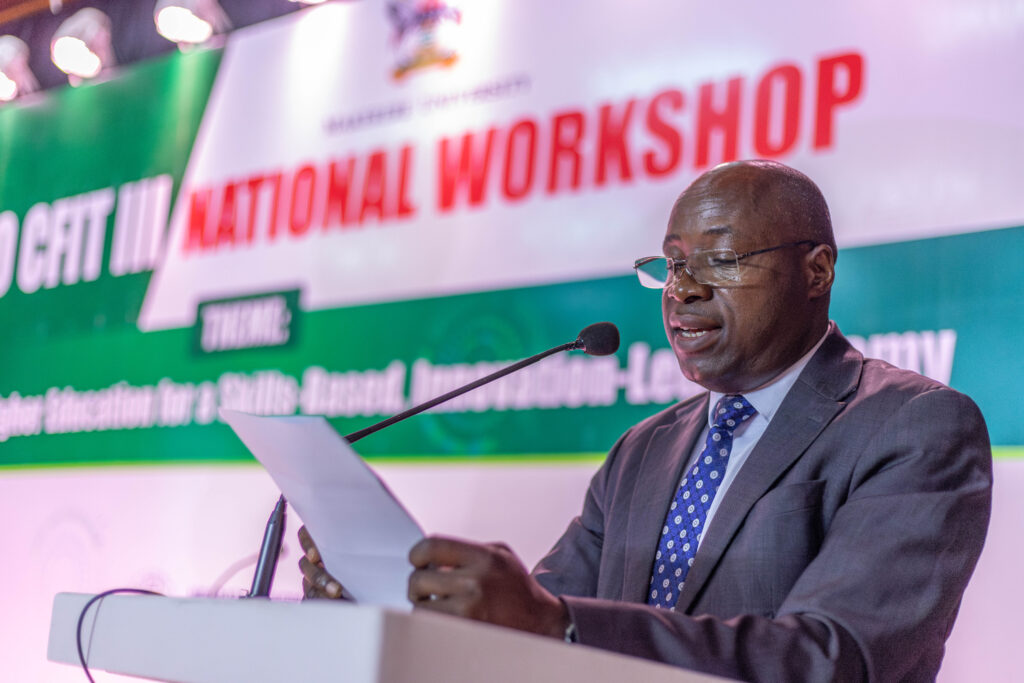
Dr. Medard Twinamatsiko (Team Leader UNESCO-CFIT III Project, MUST)
Speaking from MUST’s experience as a CFIT partner and Director of the Center for Innovations and Technology Transfer (CITT), Dr. Medard highlighted how competence-based reforms are already reshaping Ugandan higher education:
- Labor market analyses since 2022 to align training with employer needs.
- Six curricula modernized for competence-based learning.
- Micro-credential short courses in organic farming and entrepreneurship, amongst others.
- Certification of the micro-credential with the Uganda Vocational and Technical Assessment Board (UVTAB).
- 173 academic staff were trained and graduated in institutional pedagogy and competence-based education for MUST, with a national rollout in sight.
Building Competence for the Future! Innovation must not end in research papers. It must translate into products, jobs, and industries that benefit our communities.
Most importantly, students and graduates are turning ideas into market-ready innovations. Highlighted among them was Arthur Anyole, Executive Director of AKOLS and former Team Lead of DERMARLIC Tincture (THA 1119) Project, officially recognized by the National Drug Authority. Other standout innovations included renewable energy incubators for poultry farmers and organic fertilizers.
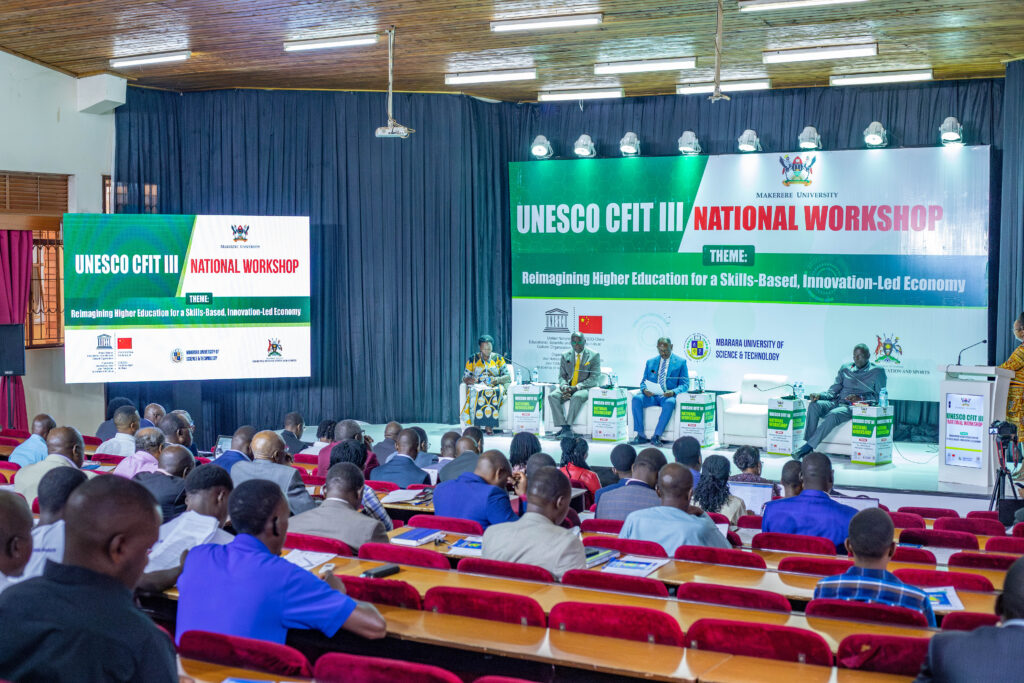
Prof. Eng. Dorothy Okello (Team Leader UNESCO-CFIT III Project, MAK)
Prof. Dorothy, who also doubles as the Dean of the School of Engineering at Makerere University, shared CFIT’s journey of embedding innovation ecosystems into teaching, research, and partnerships. The program tackled challenges such as weak career guidance, limited internship value, and poor innovation spaces.
Key actions included:
- Competence-based curriculum reviews and instructor handbooks.
- Enterprise incubation through Makerere University Innovation Pod (UniPod).
- Internship models that linked industrial training to community projects and final-year innovations.
- Strategic alignment with Uganda’s National Development Plan (NDP IV).
A Blueprint for University-Industry Ecosystems! Embedding green skills into education and strengthening innovation ecosystems is the key to creating sustainable jobs, fueling economic growth, and building a future where academia and industry drive Uganda’s development together.
She emphasized that universities, industry, government, and civil society each have “homework”:
- Universities: embed innovation into curricula.
- Industry: provide real-world challenges for students to solve.
- Government: invest in a national innovation ecosystem and IP support.
- Civil society: ensure inclusivity and community impact.
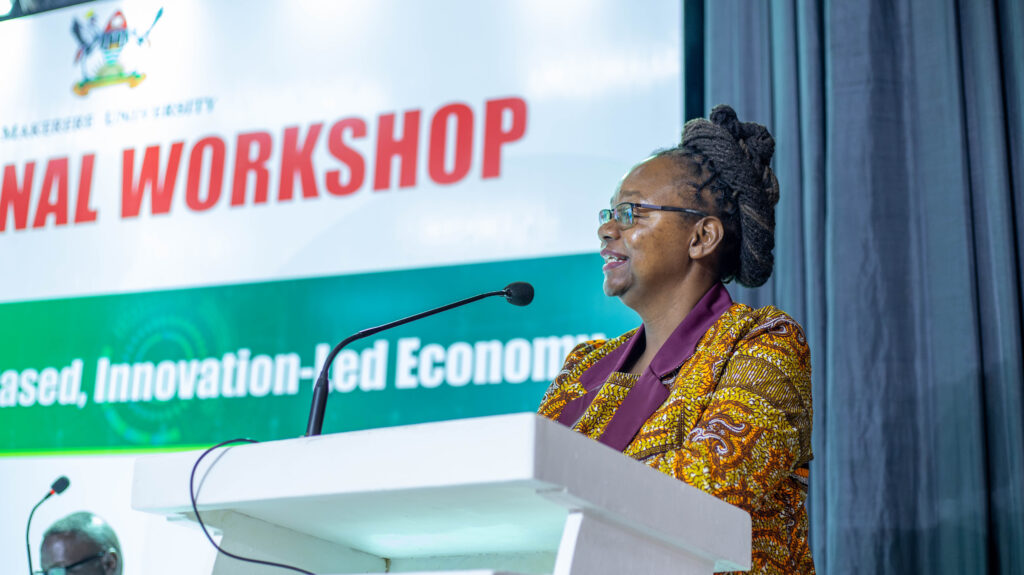
Dr. Crispin Duncan Sesaazi (Head, Department of Pharmaceutical Sciences, MUST)
Dr. Duncan drew attention to the pharmaceutical sector, underscoring the synergy between pharmaceutical scientists and pharmacists: one designs and develops new medicines, and the other ensures safe and effective use of medicines by patients.
However, he stressed that Uganda needs stronger pathways from laboratory benches to industrial production. Without local manufacturing, IP frameworks, and industrial training, innovations risk staying on shelves instead of saving lives.
From Lab to Industry! Universities must work hand in hand with pharmaceutical manufacturers, equip staff with industry-standard training, and position Uganda for global pharma competitiveness.
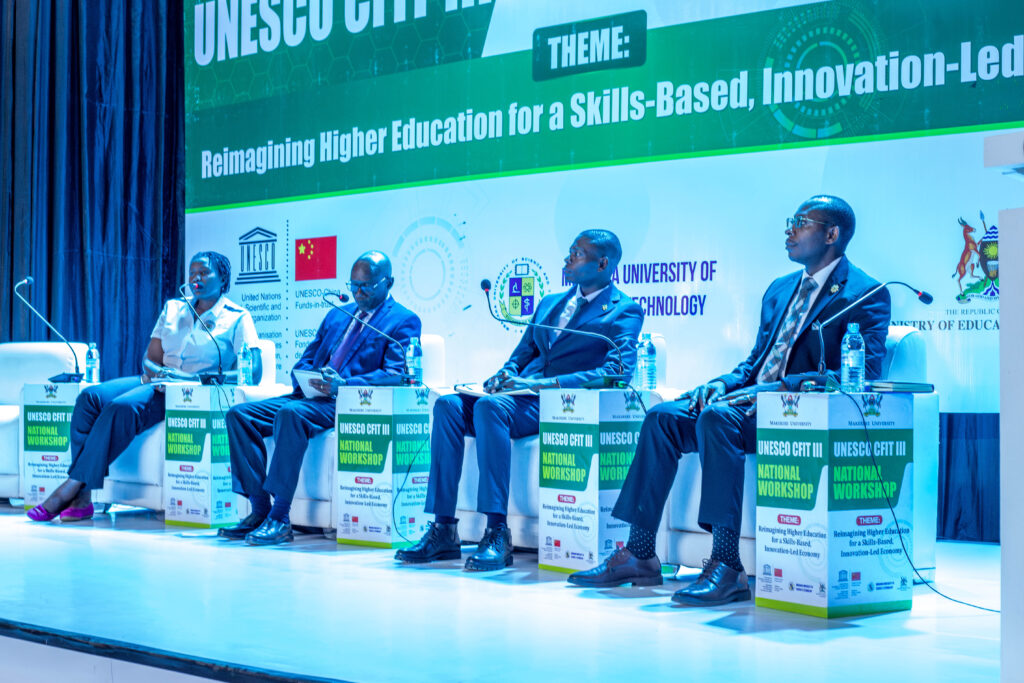
Dr. Edward Kazaire (Executive Director, Kazire Health Products Ltd.)
From the private sector, Dr. Kazaire’s story illustrated how indigenous knowledge, once dismissed as “witchcraft,” has now found legitimacy through standardization, regulation, and partnerships with universities.
Proof of Concept: Standardizing Indigenous Knowledge. There is money in public health innovation, but only standardized, university-refined products can unlock it.
He emphasized that “Industries that fail to partner with universities will die.” Universities refine raw ideas into safe, standardized, and scalable products that meet regulatory and market expectations.
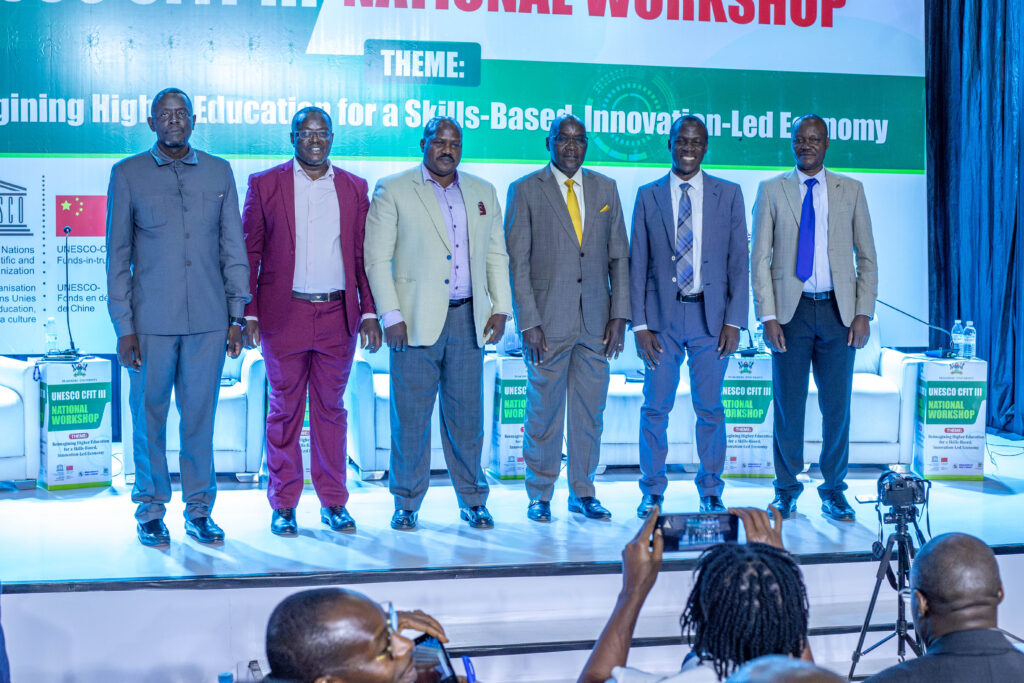
The Bigger Picture: Uganda’s Path to Shared Prosperity
Uganda is charting a new course: turning knowledge into factories, graduates into innovators, and research into inclusive prosperity.
With stronger academia-industry-government-society linkages, Uganda can transform its greatest resource, its people, into the driving force of industrialization and sustainable development. Educate for competence. Partner with industry. Regulate for trust. Invest for scale. Deliver for society.

